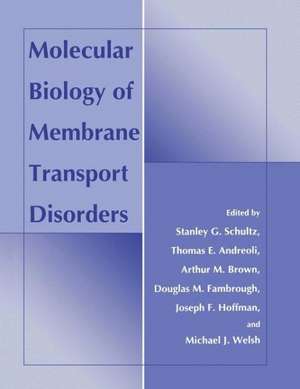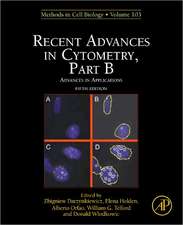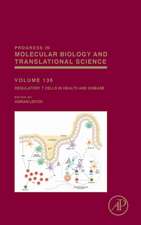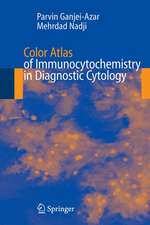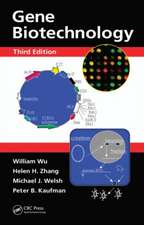Molecular Biology of Membrane Transport Disorders
Editat de Thomas E. Andreoli, A.M. Brown, D.M. Fambrough, Joseph F. Hoffman, Stanley G. Schultz, Michael J. Welshen Limba Engleză Hardback – 29 iun 1996
Preț: 1636.32 lei
Preț vechi: 2153.06 lei
-24% Nou
Puncte Express: 2454
Preț estimativ în valută:
313.21€ • 340.33$ • 263.27£
313.21€ • 340.33$ • 263.27£
Carte tipărită la comandă
Livrare economică 17-23 aprilie
Preluare comenzi: 021 569.72.76
Specificații
ISBN-13: 9780306451645
ISBN-10: 0306451646
Pagini: 657
Ilustrații: 657 p. 121 illus.
Dimensiuni: 210 x 279 x 43 mm
Greutate: 0 kg
Ediția:1996
Editura: Springer Us
Colecția Springer
Locul publicării:New York, NY, United States
ISBN-10: 0306451646
Pagini: 657
Ilustrații: 657 p. 121 illus.
Dimensiuni: 210 x 279 x 43 mm
Greutate: 0 kg
Ediția:1996
Editura: Springer Us
Colecția Springer
Locul publicării:New York, NY, United States
Public țintă
ResearchDescriere
When the six of us gathered to start planning for what was to be the Third Edition of Physiology of Membrane Disorders, it was clear that since 1986, when the Second Edition appeared, the field had experienced the dawning of a new era dominated by a change in focus from phenomenology to underlying mechanisms propelled by the power of molecular biology. In 1985, detailed molecular information was available for only three membrane transporters: the lac permease, bacterial rhodopsin, and the acetylcholine receptor. During the decade that has since elapsed, almost all of the major ion channels and transport proteins have been cloned, sequenced, mutagenized, and expressed in homologous as well as heterologous cells. Few, if any, of the transporters that were identified during the previous era have escaped the probings of the new molecular technologies and, in many instances, considerable insight has been gained into their mechanisms of function in health and disease. Indeed, in some instances novel, unexpected transporters have emerged that have yet to have their functions identified. The decision to adopt the new title Molecular Biology of Membrane Transport Disorders was a natural outgrowth of these considerations.
Cuprins
Biomembranes and Strategies for Study: Membrane Traffic and Compartmentalization within the Secretory Pathway (J. LippincottSchwartz). Cell Adhesion (J. Covault). The Membraneassociated Cytoskeleton and Exoskeleton (R.J. Bloch). Isolation and Reconstitution of Transporters (W.P. Dubinsky). Permeability and Conductance in Ion Channels (D.C. Dawson). Membrane Channels and Carriers: The Lactose Permease of Escherichia coli: An Update (H.R. Kaback). Structure and Function of Voltagegated Ion Channels (W.A. Catterall). Nicotinic Receptors in the Central Nervous System (C.K. Ifune, J.H. Steinbach). GABA, Glycine and Glutamategated Channels in Neurological and Psychiatric Illness (M.G. Darlison, R.J. Harvey). The Genetic and Physiological Basis of Malignant Hyperthermia (D.H. MacLennan et al.). Stretchactivated Ion Channels (H. Sackin). Cation Transport ATPases (D.M. Fambrough, G. Inesi). Multidrug Resistance Transporter (M.M. Gottesman et al.). Transport in Organized Systems: Mitochondrial Transport Processes (R.S. Kaplan). Receptormediated Endocytosis (V.P. Knutson et al.). Signal Transduction by G Protein Coupled Receptors (M. Birnbaumer, L. Birnbaumer). Egg Membranes During Fertilization (L.A. Jaffe). Cell Volume Regulation (J.R. Sachs). Regulation of Cell pH (O.W. Moe, R.J. Alpern). Regulation of Intracellular Free Calcium (W.B. Busa). Sodium Transport by Epithelial Cells (L.G. Palmer). Clinical Disorders of Membrane Transport: Cell Death (T.J. Burke). Genetic Variants of Erythrocytes (J.C. Parker). Disorders of Biliary Secretion (P. Zimniak, R. Lester). The Pathophysiology of Diarrhea (J.H. Sellin). the Myasthenic Syndromes (H.J. Kaminski, R.L. Ruff). Genesis of Cardiac Arrhythmias: Roles of Calcium and Delayed Potassium Channels in the Heart (R.S. Kass). Cystic Fibrosis (M.J. Welsh). Familial Periodic Paralysis (L. Ptá175>ek, R.C. Griggs). 4 additionalarticles. Index.
